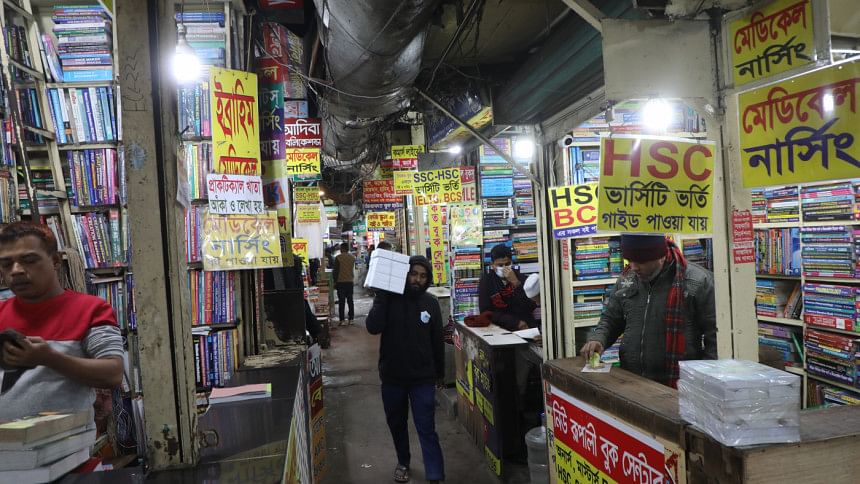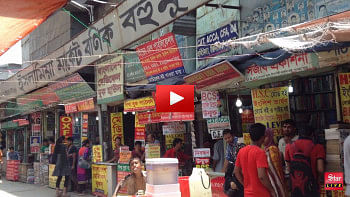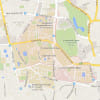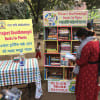Nilkhet: where stories once lived

Nilkhet is not merely a name on Dhaka's map; it is an emotion. A place steeped in layers of memory, significance, and quiet reverence for the book lovers of this bustling city. Nilkhet book market was a treasure trove where the curious minds of Dhaka came to seek knowledge, stories, and dreams. Those narrow, serpentine alleys lined with shelves brimming with second-hand books offered a kind of solace that only the faint rustle of old pages can provide.
For generations, Nilkhet symbolised more than just commerce -- it was a rite of passage. "I used to come here with my father," recalls Ahmed Hasan, a banker who still cherishes those memories. "He would buy me books… I would get Bangla comics like Betal, Mandrake, or Nonte Fonte. Unfortunately, I cannot do that with my son anymore as they don't really have any such books for children."

Once upon a time, the market catered to diverse literary tastes. From Tin Goyenda to Masud Rana, from Archies to Tintin, Nilkhet was where fables and adventures found eager readers. Classics stood alongside dusty Sheba Prokashoni paperbacks and English literature, while comics were stacked high, waiting to ignite young imaginations.
These days, however, the market wears a different face. Guidebooks for competitive exams -- BCS, MBBS, and university admissions -- have taken over. Vendors sell what the people demand, and sadly, that no longer includes novels, poetry, or whimsical comics.
"Nilkhet is not the same," says Shahana Azim, a retired professor of Bangla. "Books are not found here anymore; instead, there are notebooks and guidebooks. It feels like the heart of Nilkhet is missing."
For vendors like Sajib Bhuinyan, it's a matter of survival.

"We sell guidebooks because that's what customers want," he says with a resigned shrug. "Not many people look for novels or poetry anymore. We do have some English fiction, but they don't sell much."
"The transformation of Nilkhet reflects a broader shift in society's priorities. The relentless pursuit of grades, jobs, and material success has eclipsed the unhurried joy of losing oneself in a story. Those who still visit for fiction or poetry now scour the pavements, where a few lucky finds might linger, hidden on the bottom shelves or in shadowed corners," says Rosa Akter, a research coordinator at an NGO.
And yet, amidst the overwhelming presence of guidebooks, there remains a whisper of what Nilkhet once was. The nostalgia lingers like the faint scent of ink on weathered pages. It is a place that still holds the echoes of laughter and discovery, of fathers passing down the gift of reading to their children, of afternoons spent hunting for that one elusive title.

In the words of Gabriel García Márquez, "What matters in life is not what happens to you, but what you remember and how you remember it." Nilkhet, in its current state, may no longer be the same dreamscape it once was, but in the memories of its visitors, it is still a sanctuary of stories. And as the sunlight filters through the gaps between the tin roofs and the book-lined paths, it's hard not to believe that somewhere within its labyrinth, the soul of Nilkhet still endures.
The days of finding dreams in its dusty alleys may be gone, but the longing for those simpler, story-filled times remains eternal. For those who knew it in its glory, Nilkhet will forever be more than a market -- it will be a chapter of Dhaka's heart.

 For all latest news, follow The Daily Star's Google News channel.
For all latest news, follow The Daily Star's Google News channel. 










Comments